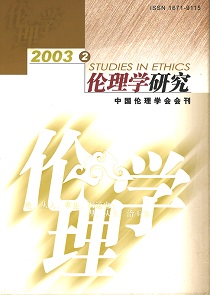|
|
Causes for the Crisis of Moral Belief and Ways to Overcome It
HUANG Mingli, DING Yan
2003(2):
29-31.
Moral belief is a kind of ultimate concern for morality,anirrational existing form of rationality, and the spiritual support for mankind.The so-calledcrisis of moral belief results from moral idealism,the unreasonabilities of institutional arangement,the negative effects of the market economy, and the unsmoothness of socialist system.In order to overcome the crisis,it is necessary for us to promote economic development,to strengthen institutional construction,and to consolidate conscioueness of regulation.
|



